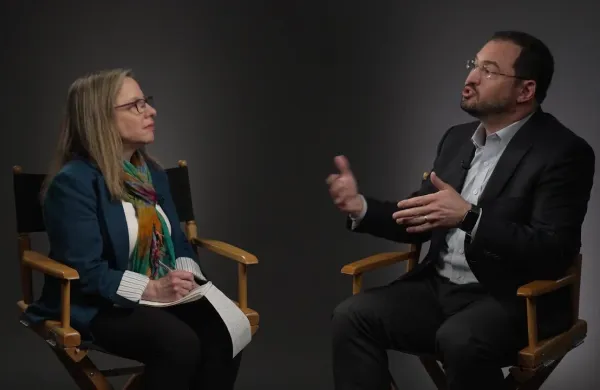The days of private equity firms simply borrowing money to buy a company and juicing its near-term performance to generate good returns are long gone. But now, in a tough market with higher interest rates, asset managers have to work even harder to improve their portfolio companies, and themselves, to deliver strong returns.
“The traditional way to generate returns from financial engineering, including multiple arbitrage and highly levering companies, is no longer the norm. Managers have to focus more on creating value through more active management through the implementation of their well-honed operational playbooks,” said Elizabeth Traxler, managing director and senior member of the private investment portfolios and co-investments team at Neuberger Berman.
Even during years like 2023, private equity firms need to try and return capital to investors, either by sharing income from portfolio companies or selling them. But fat profits are harder to come by and companies are trading for less. That means, private equity firms are getting even more hands-on with the companies they own than in the past, said Joshua Maxey, co-founder of Third Bridge. They are spending more time helping their companies recruit employees, navigate higher interest rates and determine how they stack up against competitors.
“To ensure that distributions are flowing back to LPs, that means that you have to have businesses that are on track to have margin expansion. Multiple expansion is not something that we're seeing in the market right now,” Maxey said. “Your only other real lever is to make sure that you're getting the margin expansion that is in line with the equity story. Private equity firms just have to ensure that they are doing everything possible they can to support their portfolio companies."
But even selling healthy companies can be a struggle. (Buyers and sellers are still relatively far apart on prices, especially in the technology and energy, infrastructure, and resources sectors, according to a Third Bridge survey of 100 private equity executives across different firm sizes.)
Nonetheless, they need deals to happen; some investors want liquidity and, although fundraising has been tougher in 2023, private equity firms also need to invest the capital they previously raised. To do that, they are focusing more on sourcing their own opportunities. Many firms do this already, but fewer ideas are coming from outside their own walls. “A private equity firm, historically, was getting a call per day with another new deal from an investment bank. That isn't happening at the moment,” Maxey said.
Private equity firms are also relying more heavily on dedicated resources to manage relationships with private credit and bank lenders, which have become more conservative. Financing is more costly and covenants are stricter. “This is especially important in current markets where rates are higher and [lenders] are still gravitating toward the highest quality deals. Financing relationships also play a large role in the implementation of add-on acquisitions, which can be highly accretive, but also require incremental debt, preferred or minority equity,” Traxler said.
The trends of spending more time with portfolio companies, sourcing more deals on their own, and being more agile when it comes to financing, might not reverse when markets improve either. This year could prove to be a catalyst for private equity firms — a reminder of the value operational leverage can create — and make them stronger in the long run.
David Breach, president and chief operating officer of Vista Equity Partners, said there has been a lot of discussion about “getting back to basics” in the industry, but the private equity firms that consistently perform well always had good operational capabilities. All private equity firms will have to do the same for the foreseeable future.
“Hands-on partnership with portfolio companies is an all-weather strategy. Fine-tuning operations and strategies is essential in all market cycles, especially now,” said Michael Fisch, founder and CEO of American Securities.
If it hadn't already, a new reality is setting in for private equity firms, according to Maxey: "Return expectations will be on a different scale, and therefore you have to find other levers to unlock value. The best way to do that, of course, is through portfolio enhancements."







